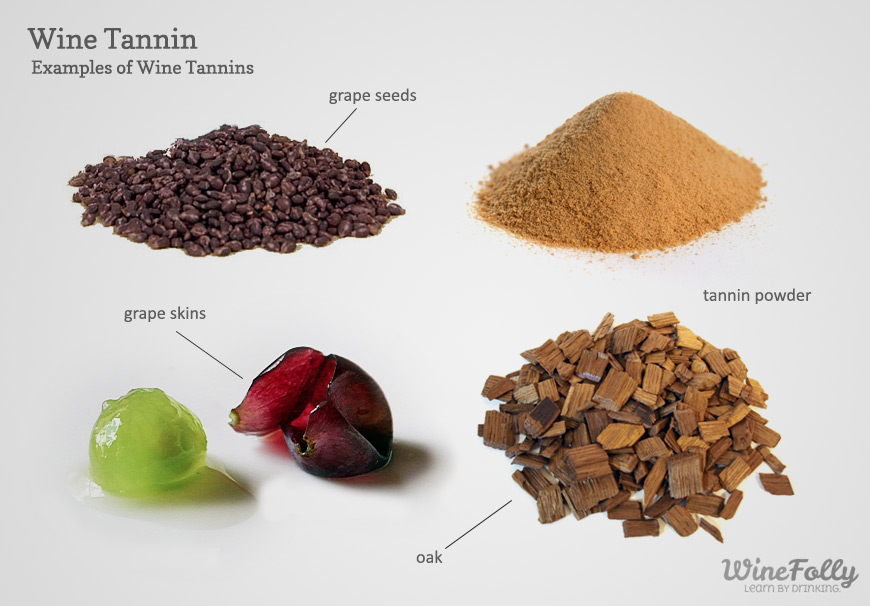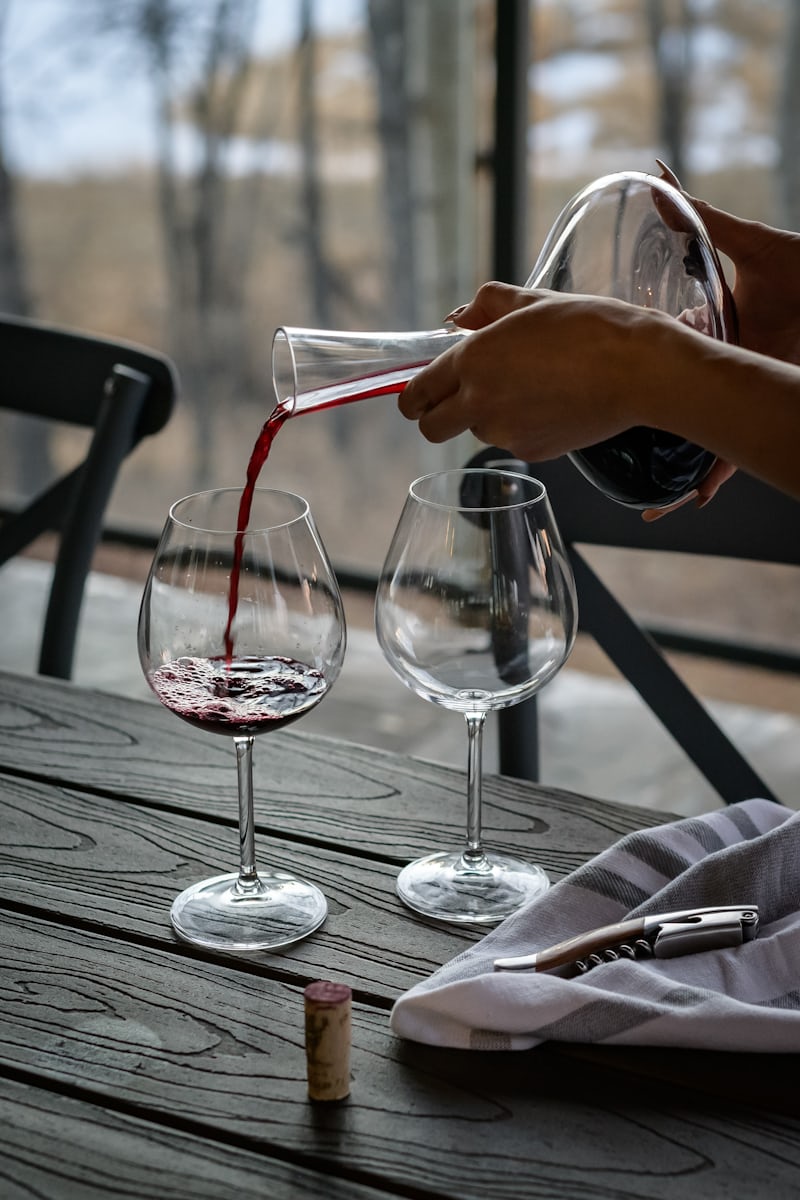

What are tannins?
Tannins = Natural polyphenols derived from plants, seeds, bark, wood, leaves, and fruit skins.
Polyphenols = complex bonds of oxygen and hydrogen. Idk. Science, man.
Essentially, tannins are microscopic solid pieces of plants...
They feel astringent and grippy on the palate, particularly on your gums, inside of your cheeks, and tongue. Tannins taste bitter, but think good bitter, like dark chocolate or espresso. So if a wine (particularly red wine) tastes bitter, feels grippy in your mouth, and is drying out your palate, odds are that the wine is high in tannins. If you cannot pinpoint what tannins feel like, they're also present in black tea, and are most noticeable in iced tea.
Have you ever taken a sip of wine, and then feel your tongue and cheeks get Sahara Desert dry? These are tannins.
Where do tannins come from?

Tannins in wine mostly come from grape skins, seeds, and stems. Oak barrels can also impart tannins into the wine as the wood itself has tannins in it. Cheap bulk conventional wines often have tannin powders added to them (GROSS!), but since this is a natural and low intervention wine blog, we're not going to get into tannin powders or oak chips.
Are there tannins in red wine and white wine?

Technically, yes. However, when we talk about tannins we're vastly referring to red wines. Why? Red wines are fermented (and sometimes aged) on the skins. This process is called maceration.
Remember: the color of the wine come from contact with the skins, as the skins are where all the pigment is found. And since wine tannins are mostly derived from grape skins/seeds/stems they're mostly found in red wines.
White wines are "direct pressed" meaning the juice is squeezed out of the grapes, and fermented off the skins. So when a white wine has (subtle) tannins, it's safe to assume it was aged in oak barrels.
What about tannins in rose and orange wines?

Rose is also macerated like red wines, however for a significantly shorter period of time. That's the main difference between red and rose wines. Typical maceration periods are...
- Red wine maceration: 1-4+ weeks
- Rose wine maceration: 2-24 hours
- Orange wine maceration: there's not really a template yet! Anywhere from a day to 6+ months!
So the longer a winemaker macerates the wine, the more tannins it will have, regardless of rose, orange, or red!
When should I drink tannic wines? What should I pair with tannic wines?

Tannins and animal fats go together like...
lamb and tunafish? Well, more like a duo that actually go well together... burger and fries?
Remember when I mentioned black tea having tannins? Well, what takes the edge off of a robust black tea? Cream. Think about chai tea without milk or cream. Pretty harsh. Put a little cream in that cup and you're partying!
It's the same thing with wine tannins. They love animal fats! This is why "steak wines" are typically grape varieties that have high tannins:
- Nebbiolo
- Petite Sirah
- Cabernet Sauvignon
- Mourvedre
- Syrah
- Malbec
These grapes are a perfect marriage for fattier proteins like ribeye's, roasts, stews, etc. Even some vegetarian dishes need wine with some subtle tannins... think of creamy, cheesy pasta dishes like Caceo e Pepe.
What should I do if a wine has too much tannins?
Holy shit dude, this wine is ripping my gums off! What do I do? Decant it! Take this with a grain of salt, but pretty much all red wines besides Gamay, Pinot Noir, and Trousseau will benefit from decanting.
General rule of thumb when it comes to decanting: the more tannic the wine, the more it needs to be decanted. This is why orange wines that have a longer maceration period will also benefit from decanting.
When oxygen and tannins interact, the tannins will mellow out, becoming softer and silkier. This is why really tannic wines sometimes need hours in a decanter before they start drinking at their peak!
Are tannins in wine a good thing?
Typically yes. Especially when you pair them with meaty fatty foods.
Although the more tannins a wine has, the more it needs to age. But it's a symbiotic relationship, as tannins are a natural preservative. So not only do tannins often need to age, but they also will allow the wine to age. Some yin and yang. Beautiful stuff!
Have any questions about tannins? Drop em in the comments!
